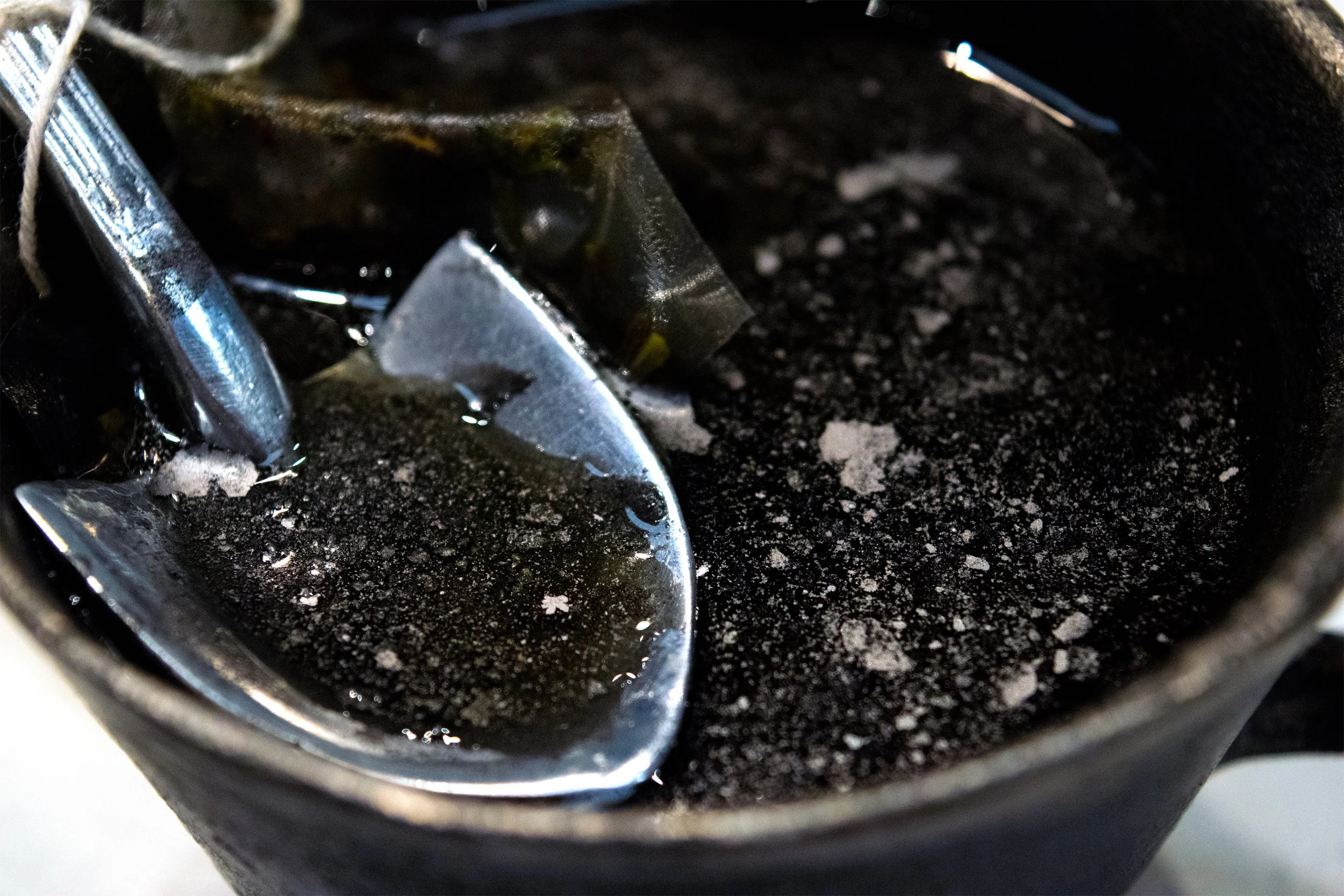Loretta Lynn
2019, 5” x 4.5” x 5”
iron, aluminum, tea, coal dust
Well, I was borned a coal miner's daughter
In a cabin, on a hill in Butcher Holler
We were poor but we had love
That's the one thing that daddy made sure of|
He shoveled coal to make a poor man's dollar
…
Daddy loved and raised eight kids on a miner's pay
Mommy scrubbed our clothes on a washboard ever' day
Why I've seen her fingers bleed
To complain, there was no need
She'd smile in mommy's understanding way
…
Yeah, I'm proud to be a coal miner's daughter
I remember well, the well where I drew water
The work we done was hard
At night we'd sleep 'cause we were tired
I never thought of ever leaving Butcher Holler
Well a lot of things have changed since a way back then
And it's so good to be back home again
Not much left but the floor, nothing lives here anymore
Except the memory of a coal miner's daughter
- Loretta Lynn, “Coal Miner’s Daughter," 1969
Dust is pervasive; it coats surfaces, fills lungs, and nestles in the grooves of a fingerprint. Coal dust is even more persuasive, leaving stains on furniture and disease in bodies that will never be allowed to forget the mine.
The dangers of fossil fuel use are evident, and truly undeniable. The Friends of Coal find themselves with many enemies and too few dollars. But when just generation ago these men and their families were celebrated as Fine Americans, symbols of a hard-working, don't-know-how-to-quit workforce, how are they to cope with the sudden dishonor thrust upon their legacies?
When the world is changing too fast for a body to keep up with, when ice caps are decapitated and autumn lasts through January, what happens to the men who fueled the lanterns of progress? How do they feed their own when a lifetime of sacrifice and skill is worth less than nothing? What do we owe our brothers and fathers if not a sympathetic ear?

